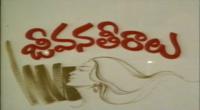The biblical David (Arabic: ?????, translit. D?’?d or Arabic: ??????, translit. D?w?d), who was, according to the Hebrew Bible, the second king of the United Kingdom of Israel and Judah, reigning in c.?1010–970 BCE, is also venerated in Islam as a prophet and messenger of God, and as a righteous, divinely-anointed monarch of the ancient United Kingdom of Israel, which itself is revered in Islam. Additionally, Muslims also honor David for having received the divine revelation of the Psalms. Mentioned sixteen times in the Quran, David appears in the Islamic scripture as a link in the chain of prophets who preceded Muhammad. Although he is not usually considered one of the "law-giving" prophets (ul? al-?azm), "he is far from a marginal figure" in Islamic thought. In later Islamic traditions, he is praised for his rigor in prayer and fasting. He is also presented as the prototypical just ruler and as a symbol of God's authority on earth, having been at once a king and a prophet. David is particularly important to the religious architecture of Islamic Jerusalem.
| Islamic prophet Dawud (Arabic: ????????) Da’ud (Arabic: ?????) David | |
|---|---|
| Born |
10th century BC Jerusalem, Ash-Sham |
| Died |
9th century BC Jerusalem, the Levant |
| Other names | ??????? D?wî? |
| Known for | Defeating Goliath; being the King of Israel; being given the Psalms; prophesying to and warning Israel; being highly gifted musically and vocally |
| Title | Vicegerent of God |
| Predecessor | Kingship: Talut, Prophet-hood: Samu’il |
| Successor | Kingship and Prophet-hood: Solomon |
| Children | Solomon |
Contents
Name
The Qur’anic Arabic form of David is D?wud or D?w?d, differing from Koine Greek ????? and Syriac Daw?d (which follow Hebrew D?w?d). These forms appear in the Quran sixteen times.
Narrative in the Qur’an
David's narrative in the Qur’an, in many respects, parallels that given in the Bible. Although he is never explicitly named a prophet (nab?) or a messenger (ras?l), David is included in lists of those who received revelation (wa?y; 4:163) or guidance (hud?; 6:84) from God. In both lists his name appears next to that of his son Solomon. Elsewhere, the Quran explains that God gave to both of them the gifts of "sound judgment" (?ukm; 21:79) and "knowledge" (?ilm; 21:79; 27:15). Yet the Quran also ascribes to David merits that distinguish him from Solomon: David killed Goliath (2:251) and received a divine revelation named the Psalms (4:153, 17:55; 21:105 uses the definite form al-zab?r), presumably a reference to the Psalms or the Psalter (the term zab?r is perhaps related to Hebrew mizm?r or Syriac mazm?r?, "psalm"). The mountains and the birds praised God along with David (21:79; in 34:10 God commands them to do so; cf. Psalm 148:7–10). God made David a "vicegerent" (khal?fa; 38:26), a title that the Quran otherwise gives only to Adam (2:30). This title suggests that, to the Quran, David was something more than a messenger: he was a divinely guided leader who established God’s rule on earth. This role is also suggested by 2:251: "God gave him authority (mulk) and wisdom (?ikma) and taught him what He willed. If God did not drive back some people by others, the earth would become corrupt."[10]
Among the things taught to David was the ability to make armour (21:80, 34:10–11), a suggestion that David’s military exploits were the act of God. It is also important that the Quranic reference to David's "wisdom" was sometimes explained by the classical exegetes as the gift of prophecy.[11] The Quran also connects David and Jesus, by insisting that both cursed those Israelites who did not believe (5:78). Moreover, according to the Quran, David was given the ability to distinguish between truth and falsehood when dispensing justice (fa?l al-khi??b, 38:20). Furthermore, there is the allusion to a test David was put through, wherein he prayed and repented and God forgave him (38:24-5). Surat Sad (the 38th chapter of the Quran) is also called "the s?ra of David"[12] Exegetes explain that since David prostrated when asking God to forgive him, Muhammad was ordered to imitate him and to perform a prostration when reading this chapter.[13]
Religious significance
David is one of the few Islamic Prophets who received Kingship as well. While other prophets preached during the reign of kings, David, in his time, was the king. Thus, he received an extremely large task, of making sure that the people of Israel were not only held in check spiritually but that the country itself remained strong as well. His place as both leader and prophet is revered by all Muslims as one of extremely high rank. The figure of David, together with that of his prophetic son, Solomon, are iconic of people who ruled justly over their land.
God frequently mentions David's high rank as a prophet and messenger in the Qur'an. He is often mentioned alongside other prophets to emphasize how great he was. For example, God says:
And We gave him Isaac and Jacob and guided them, as We had guided Noah before them, and of his descendants, David and Solomon and Job and Joseph and Moses and Aaron. Thus We reward those who are upright and do good.
—?Qur'an, sura 6 (Al-An'am), ayah 84[14]
When the Caliph ‘Umar visited Jerusalem, the Patriarch Sophronius accompanied him on the Temple Mount, while he searched for the Mihrab Dawud (David's prayer-niche) to perform a prayer. Later commentators identified this site with the Tower of David. In a hadith, the prayer and fasting of David is mentioned to be dear to God.
Narrated Abdullah bin 'Amr bin Al-'As: The Apostle of Allah told me, "The most beloved prayer to Allah is that of David and the most beloved fasts to Allah are those of David. He used to sleep for half of the night and then pray for one third of the night and again sleep for its sixth part and used to fast on alternate days."
—?Muhammad al-Bukhari, Sahih al-Bukhari[15]
The Book of David
The Zabur is the holy book attributed to Prophet David by God, just as Prophet Musa (Moses) received the Tawrat (Torah), Prophet Isa (Jesus) received the Injil (Gospel) and Prophet Muhammad (Mu?ammad ibn ?Abd All?h ibn ?Abd al-Mu??alib ibn H?shim) received the Quran. In the current Hebrew Bible, the Zabur is known as the Psalms. However, like other scriptures of the past, the Psalms are believed to have been corrupted over time, with some of the original message now gone. Nonetheless, Muslims are told to treat the present Psalms with immense respect because, in their original form, they too were an inspired Book of God. The Quran states:
Your Lord knows whoever is in the heavens and the earth. We exalted some of the prophets over the others; and to David We gave the Book of Psalms.
—?Qur'an, sura 17 (Al-Isra), ayah 55[16]
The term Zabur is the Arabic equivalent of the Hebrew Zimra, meaning "song/music." It, along with Zamir ("song") and Mizmor ("Psalm"), is a derivative of Zamar, meaning "sing", "sing praise", "make music". Thus, David is also usually attributed the gifts of music and song.
Bibliography
Primary
?Abdall?h b. al-Mub?rak, Kit?b al-Zuhd, ed. ?.R. al-A??am?, Beirut n.d., 161-4
A?mad b. ?anbal, al-Zuhd, Cairo 1987, 111-2, 114, 134
R.G. Khoury, Wahb b. Munabbih (Codices arabici antiqui i), Wiesbaden 1972 (with bibliography)
id., Les légendes prophétiques dans l'Islam depuis le Ier jusqu'au IIIe siècle de l'hégire (Codices arabici antiqui iii), Wiesbaden 1978, 157-74
Hibat All?h b. Sal?ma, al-N?sikh wa-l-mans?kh (in the margin of W??id?, Asb?b), Cairo 1316/1898-9, 262
Ibn Qud?ma al-Maqdis?, Kit?b al-Taww?b?n, ed. ?A.Q. Arn????, Beirut 1974
Majlis?, Bi??r al-anw?r, Beirut 1983, xiv, 1-64; lxxiv, 39-44
Muq?til, Tafs?r, i, 423; ii, 87-8, 639-43; iii, 87-8, 298-9, 525-6
Sib? Ibn al-Jawz?, Mir??t, i, 472-92
Suy???, Durr, vii, 148-76
?abar?, Tafs?r, v, 360-76
?abars?, Majma?
Secondary
A. Geiger, Judaism and Islam, Madras 1898, 144-5
E. Margoliouth, The convicted in the Bible, cleared from guilt in the Talmud and Midrash (Hebrew), London 1949, 60-7
F.A. Mojtab???, D?w?d, in Encyclopædia Iranica, vii, 161-2
R. Paret, D?w?d, in ei2, ii, 182
Y. Zakovitch, David. From shepherd to Messiah (Hebrew), Jerusalem 1995 (see especially Annex A by A. Shin?an, 181-99)
See also
- Al-Ar? Al-Mubarakah (Arabic: ?????? ??????????????, "The Land The Blessed")
- Biblical and Quranic narratives
- Legends and the Quran
- Qisas Al-Anbiya’ (Arabic: ?????? ?????????????, "Stories of The Prophets")









.jpg)
.jpg)










